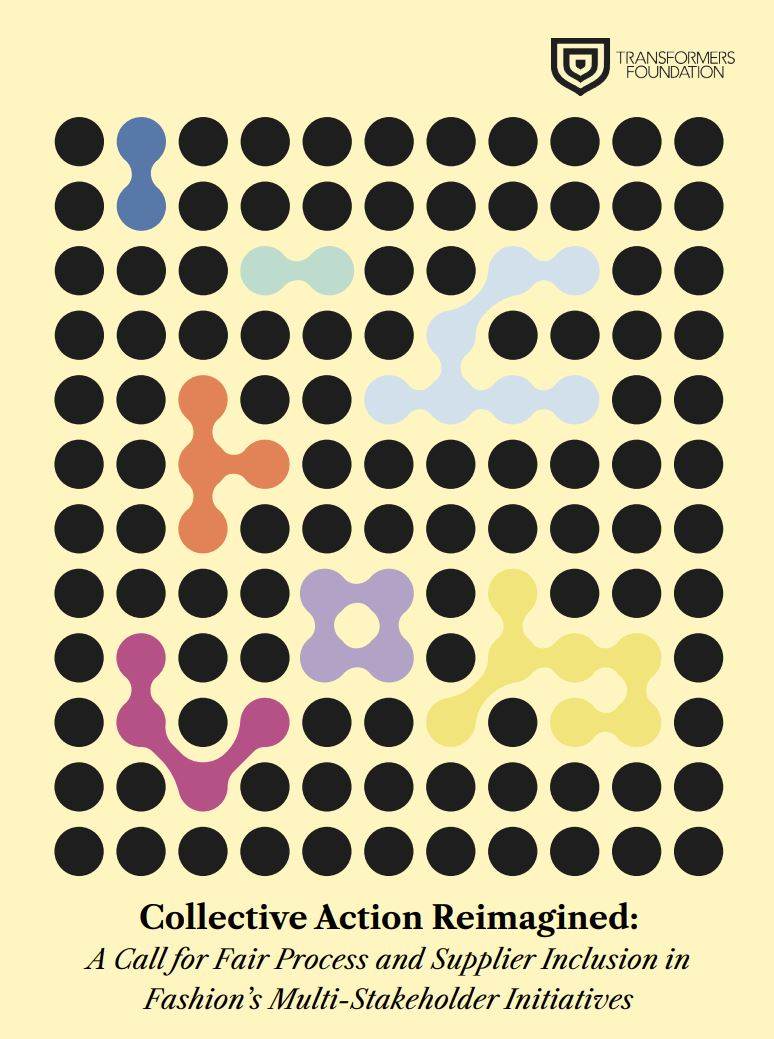Stakeholder initiatives must change, Transformers report says

Denim innovation platform Transformers Foundation has launched a new report called Collective Action Reimagined: A Call for Fair Process and Supplier Inclusion in Fashion’s Multi-Stakeholder Initiatives’.
It describes the report as an exploration of “the systemic barriers preventing meaningful supplier engagement in some of the industry’s most influential multi-stakeholder initiatives (MSIs).
Among the initiatives the report focuses on are Cascale (formerly the Sustainable Apparel Coalition), Textile Exchange, the Social and Labor Convergence Program (SLCP), and Zero Discharge of Hazardous Chemicals (ZDHC).
It compiled the report after a series of interviews with people it calls “key informants within the fashion supply chain”. It describes the interviewees as people who have in-depth first-hand experience and close knowledge of MSI supplier engagement.
The report says rules, governance and processes “often perpetuate supplier exclusion”. The organisations, though well-intentioned, often reinforce barriers that limit supplier participation, leading to what it calls “a cycle of distrust, disengagement, and ineffective sustainability strategies”.
It calls for the adoption of a ‘fair process’ model. This would be based on non-biased decision-making, equitable engagement and transparency. Transformers Foundation said its aim is to transform MSIs into “true platforms for collective action”.
Tricia Carey, formerly of Renewcell, and Alberto de Conti, denim market lead for chemicals company Rudolf, joined Elizabeth Cline, author of the report, and Kim van der Weerd, from Transformers Foundation, to discuss the report before its official launch.
“There’s a societal transformation underway,” said Tricia Carey, which makes the role of these organisations even more important. Yet it is the suppliers that will be doing a lot of the heavy lifting. “The challenges that we face concern all stakeholders equally, especially when considering decarbonisation or circularity.”
Alberto de Conti admitted that the report was an eye-opener, as chemicals companies, he said, “are low in the food chain”. He noted that the need for closer collaboration and better understanding is stronger than ever.
The number of multistakeholder initiatives, that the report believes are de facto standards makers, has led to numerous overlaps which is a major source of frustration and disengagement, despite a few initiatives to address the fragmented landscape. On this point, Mr de Conti noted that other industries have been able to address this issue.
The MSIs all responded to the Transformers Report, which can be accessed on its website, generally saying they “welcome feedback”, outlining how they are addressing some points. Textile Exchange said it is “currently implementing organisational shifts that further looks at how decisions can be more transparent and inclusive of stakeholder voices, both in setting the direction of travel, but also in implementation”.










